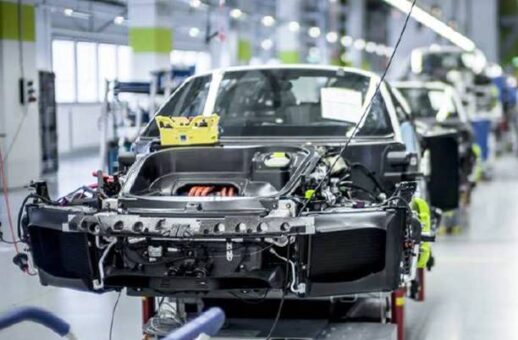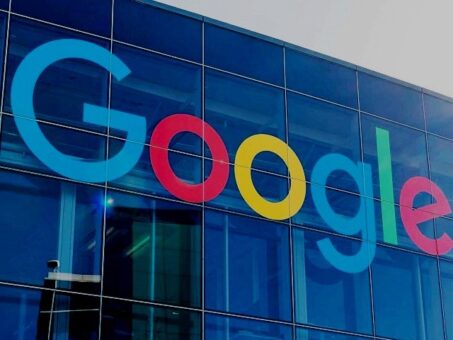ISLAMABAD: The Federal Board of Revenue (FBR) on Friday April 29, 2022 issued sales tax refund rules for agriculture tractor manufacturers.
The FBR issued SRO 563(I)/2022 dated April 29, 2022 to insert new rules in the Sales Tax Rules, 2006.
Refund to Agricultural Tractor Manufacturers
READ MORE: FBR transfers senior IR officers in major reshuffle
390. Application.— (1)This Chapter shall apply to existing and future refund claims as filed by the registered agricultural tractor manufacturers engaged in supply of agricultural tractors.
(2) The provisions of these rules shall apply only if the incidence of tax sought to be refunded has not been passed on to the consumers.
39P. Definition.— In this chapter, unless there is anything repugnant in the subject or context,-
(a) “agricultural tractor” means a tractor used by farmers or growers engaged in production of agricultural produce through tractor; and
READ MORE: IR offices to observe extended working hours for collection
(b) “eligible person” means manufacturer of agricultural tractors who supplies tractors to a person holding a valid proof of land holding such as agriculture pass book and copy of record of rights of agricultural land duly verified from Provincial Land Revenue Authorities.
39Q. Condition on supplies of agricultural tractors.— Only eligible persons shall qualify for availing reduced rate under the Sr. No. 25 of Table-1 of the eighth schedule to the Sales Tax Act, 1990.
39R. Filing of refund application.—The eligible person shall file a refund claim through STARR/RCPS system and refund application to the Commissioner Inland Revenue having jurisdiction, along with the following documents, namely:—
(a) a copy of tax paid and e-filed sales tax return;
(b) an undertaking affirming the genuineness of refund as per Sales Tax Act, 1990 and relevant rules made thereunder;
(c) a revolving bank guarantee valid for at least one hundred and twenty days issued by a scheduled bank, to the satisfaction of the Commissioner Inland Revenue having jurisdiction of an amount not less than the average monthly refund claim during last twelve months; and
(d) name, CNIC of buyers along with valid proof of land holding, ledger of already purchased agricultural tractors against each buyer.
39S. Pre-refund audit.— Where the processing officer or the officer-in-charge is of the opinion that any further inquiry or audit is required in respect of refund claim or for any other reason to establish genuineness and admissibility of the claim, he may make or cause to make such inquiry or audit as deemed appropriate, after seeking approval from the concerned Additional Commissioner and inform the refund claimant accordingly. Audit under this rule shall be completed within thirty days of initiation of the proceedings.
39T. Refund of input tax.— The refund of admissible excess input tax shall be allowed and issued within seven days of the completion of proceedings initiated under rule 39S and in case no pre-refund audit is conducted, within fifteen days of filing of the refund claim. In any case the refund of admissible excess input tax under these rules shall not be processed through FASTER module.
39U. Filing of complete refund claim.— Within fifteen days of the sanctioning of refund, the eligible person shall file a complete refund claim along with the requisite supportive documents prescribed under Chapter V of the Sales Tax Rules, 2006.
39V. Post Refund Audit.— Post refund audit of the refund claims processed under these rules shall be carried out by the concerned division based on the documents submitted by the eligible person and any other relevant documents called by the concerned officer to ascertain the admissibility and genuineness of the refund processed and issued under rule 39T. The proceedings under this rule shall be concluded within sixty days of filing of a complete refund claim by the refund claimant under rule 39U.
39W. Cost Audit.— In order to determine that the incidence of excess input tax claimed as refund under these rules by an eligible person has not been passed on to the consumers,
(a) annual cost audit will be conducted by a Cost Accountant authorized by the Board; and
(b) cost audit for a tax year shall be conducted on the basis of twelve sales tax returns for the tax year, documents filed for refund under these rules, and any other documents called by the Cost Accountant.
39X. Amount if found inadmissible.— In case any amount already sanctioned and paid is found inadmissible, the same shall be recovered within seven days of completion of proceedings initiated under rule 39V by encashing the bank guarantee to the extent of adjudged liabilities.
39Y. Section 8B not applicable.— The provisions of sub section (1) of section 8B of the Sales Tax Act, 1990 shall not be applicable on refund claims of admissible excess input tax filed under these rules.
39Z. Repeal.— The refund claims of Recognized Agricultural Tractor Manufacturers Rules, 2012 are hereby repealed.”








